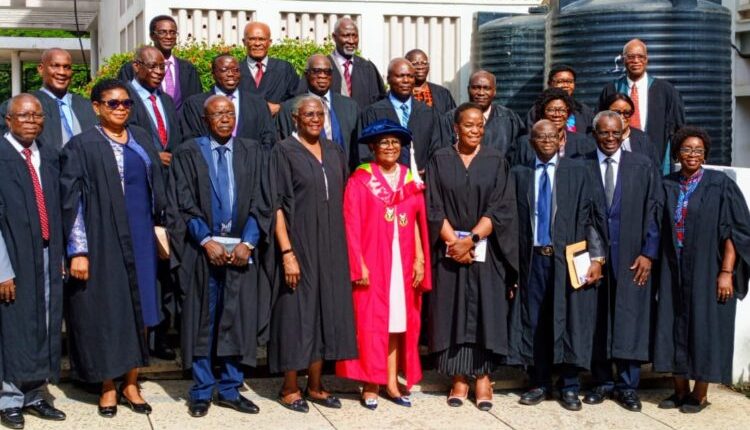BREAKING: Don Decries Nigeria’s Out-of-school Children Crisis

A university don, Professor Osifunke Ekundayo has raised the alarm over the growing number of out-of-school children in the country, describing it as a humanitarian crisis and national emergency that demands urgent constitutional and policy reforms.
Ekundayo, a professor of Law at the University of Ibadan, while delivering the institution’s 580th Inaugural Lecture titled: “Right Not Privilege: No Child Should Be Left Behind”, urged the Nigerian government to make primary education truly free, accessible, and enforceable as a fundamental human right.
Speaking under the theme: “Speaking Up for the Numerous Voiceless Children Shut Out of School in Nigeria: An Endless Odyssey”, the scholar drew from years of legal research, personal experiences, and international human rights frameworks to underscore the devastating impact of Nigeria’s broken education promises.
According to Ekundayo, Nigeria currently has an estimated 10.2 million out-of-school children, the highest in the world. “That’s one in every five globally. This is not a statistic; it is a humanitarian crisis,” she stated.
Recounting two personal encounters in 2011 that shaped her advocacy, Ekundayo narrated how a ten-year-old girl named Lola was unable to attend school due to her mother’s inability to pay fees. Similarly, a six-year-old boy named Peter who said he had been “pursued” from school, a term she described as symbolising the violence of educational exclusion.
“These encounters made it clear that unless education is truly free, without hidden costs, millions of children will remain locked out of classrooms,” she said.
Ekundayo emphasised that education was not merely a social service but a gateway right that enables individuals to access other human rights.
While Nigeria’s Universal Basic Education Act (2004) and the Child Rights Act (2003) promise free education, she noted that these commitments were not legally enforceable because they fall under non-justiciable provisions of the 1999 Constitution.
“This is the tragic paradox. Our laws promise free and compulsory education, yet those promises are aspirations, not rights,” she lamented.
Referencing global legal instruments such as the Universal Declaration of Human Rights and the Convention on the Rights of the Child, she maintained that Nigeria is bound under international law to provide free and compulsory education.
“The language of these instruments is obligatory. Failure to comply is a breach of international law,” she added.
Ekundayo also cited recent court rulings — including the ECOWAS Court’s decision in SERAP v. Federal Government of Nigeria & UBEC — as emerging legal precedents that affirm the right to education and offer hope for constitutional reform.
She traced Nigeria’s attempts at universal education from the Western Region’s free education programme in 1955, through the 1976 Universal Primary Education scheme, to the current Universal Basic Education programme launched in 1999.
The don however, noted that all have suffered from poor implementation and lack of political will.
“I am a product of free education. In the 1960s, no child was sent home for unpaid fees. Today, that has become the norm,” she said.
Using the UN’s 4A Framework — Availability, Accessibility, Acceptability, and Adaptability, Ekundayo called for measurable and result-driven education policies.
Ekundayo passionately appealed for constitutional amendment to make education a justiciable right, increased funding for education, stronger civil society advocacy, and global partnerships.
“Education must be free. It must be compulsory. It must be justiciable,” she declared. “A country that chases its children away from school is chasing away its future.”
Supporting her position, Senior Advocate of Nigeria and fellow Faculty of Law academic, Barrister Biodun Olatunji, said Nigeria cannot achieve meaningful development without sustained investment in education.
He cited the recently released JAMB results as evidence of the country’s educational decline and urged wealthy individuals and private school owners to support the education sector through infrastructure development, scholarships, and strict compliance with global best practices.
“How far any country would go depends on the amount of its investment in quality education,” Olatunji said.
